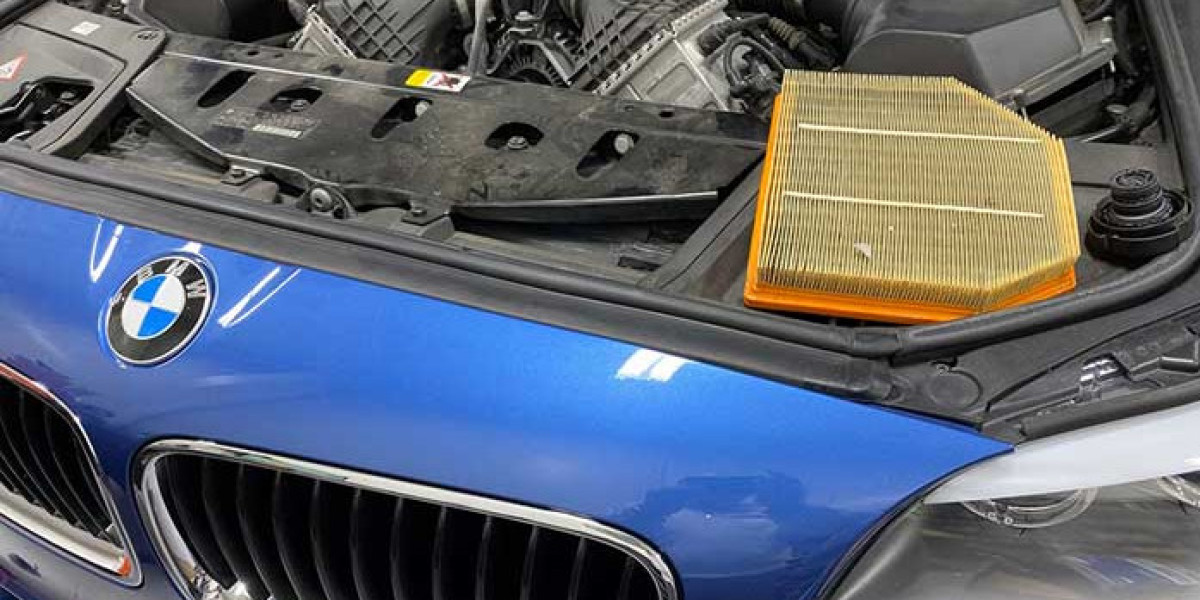When it comes to maintaining the health and performance of your BMW, few things are as important as routine filter services. Filters are a vital part of your vehicle’s systems, ensuring that everything runs smoothly and efficiently. Whether it's air filters, oil filters, or cabin filters, BMW's dedication to precision engineering means that quality maintenance is non-negotiable. Let’s dive into what makes BMW filter services Santa Rosa so important and why you should prioritize them for your vehicle.
Types of Filters in a BMW and Their Functions
BMW vehicles come equipped with various filters designed to protect critical components from contaminants. These filters serve distinct purposes:
Engine Air Filter: The engine air filter prevents dirt, dust, and debris from entering the engine’s cylinders. Clean air is essential for efficient combustion and smooth engine operation. Over time, these filters can become clogged, reducing airflow and affecting performance. Regular replacement ensures your BMW's engine runs at peak efficiency.
Oil Filter: The oil filter traps dirt and metal particles from the engine oil, keeping it clean as it lubricates the moving parts. A clogged oil filter can result in poor oil flow, potentially leading to engine wear or even failure. Regular oil and filter changes are crucial to prolong the life of your engine.
Cabin Air Filter: Often overlooked, the cabin air filter ensures the air you breathe inside your BMW is free from pollutants, dust, and allergens. It also helps keep the HVAC system clean and functioning properly. Replacing the cabin air filter not only improves air quality but also helps avoid unpleasant odors and ensures optimal climate control.
Fuel Filter: This filter ensures that no contaminants reach the fuel injectors. Clean fuel is critical for the engine to run smoothly and efficiently. A clogged fuel filter can lead to poor engine performance, misfires, or stalling. Ensuring regular replacement keeps the fuel delivery system clean and functional.
Transmission Filter: In automatic BMW models, the transmission filter helps keep transmission fluid clean, ensuring smooth shifting and prolonging the life of the transmission. It prevents harmful particles from damaging the system, avoiding costly repairs.
Why BMW Filter Services Matter
Optimized Performance: Each filter plays a critical role in protecting vital components of your BMW. Clogged or dirty filters can lead to reduced performance, poor fuel efficiency, and even severe damage to the engine or transmission. Regular filter replacement ensures that your car operates at its full potential, providing the superior driving experience that BMWs are known for.
Longevity of Your Vehicle: Filters protect the engine, transmission, and air systems from contaminants that can cause wear and tear. By regularly changing the filters, you are ensuring that these critical components stay protected, which can prolong the life of your vehicle and reduce the likelihood of expensive repairs.
Fuel Efficiency: A clean air and fuel filter promotes better fuel combustion, which translates to improved fuel efficiency. With rising fuel costs, this is a practical benefit that many BMW owners appreciate. Clean filters ensure the engine doesn’t have to work harder to perform, saving you money at the pump.
Health and Comfort: The cabin air filter keeps the air inside your car fresh and free from pollutants. Especially for those with allergies or respiratory sensitivities, maintaining a clean cabin filter is essential for a comfortable and healthy driving environment.
How Often Should You Replace BMW Filters?
The frequency of filter changes can depend on various factors such as driving conditions, vehicle model, and your typical driving habits. However, as a general guideline:
- Engine air filter: Replace every 15,000 to 30,000 miles, depending on driving conditions.
- Oil filter: Change with every oil change, typically every 7,500 to 10,000 miles.
- Cabin air filter: Replace every 15,000 to 20,000 miles.
- Fuel filter: Inspect at every service interval and replace as needed, usually every 30,000 to 40,000 miles.
- Transmission filter: Replace as part of transmission service, typically every 50,000 to 100,000 miles depending on the model and driving conditions.
Always refer to your BMW’s owner manual for the manufacturer's recommendations, as some models may have different service intervals.
Trust BMW-Approved Service Centers
When it comes to filter services, it's essential to trust professionals who understand the engineering intricacies of your BMW. BMW-approved service centers use OEM (Original Equipment Manufacturer) filters that are specifically designed for your model. These parts ensure compatibility and maintain the high performance and reliability that BMW is known for.
Certified technicians at BMW service centers are trained to inspect, diagnose, and replace filters with precision, ensuring that your vehicle is in top shape. Regular maintenance at an authorized center also ensures that your vehicle’s warranty remains intact.
Conclusion
BMW filter services are an essential part of maintaining your vehicle’s performance, safety, and comfort. By staying on top of routine filter replacements, you protect your engine, enhance fuel efficiency, and ensure a clean, comfortable driving environment. Whether you’re a daily commuter or a weekend adventurer, regular filter maintenance will keep your BMW running like the ultimate driving machine it was designed to be.









